第53章 VII(2)
Colonel Sibthorpe, in the debate on the Address, prayed that hail and lightning might descend from heaven on the accursed thing. The Prince, with unyielding perseverance and infinite patience, pressed on to his goal. His health was seriously affected; he suffered from constant sleeplessness; his strength was almost worn out. But he remembered the injunctions of Stockmar and never relaxed. The volume of his labours grew more prodigious every day; he toiled at committees, presided over public meetings, made speeches, and carried on communications with every corner of the civilised world--and his efforts were rewarded. On May 1, 1851, the Great Exhibition was opened by the Queen before an enormous concourse of persons, amid scenes of dazzling brilliancy and triumphant enthusiasm.
Victoria herself was in a state of excitement which bordered on delirium. She performed her duties in a trance of joy, gratitude, and amazement, and, when it was all over, her feelings poured themselves out into her journal in a torrential flood. The day had been nothing but an endless succession of glories--or rather one vast glory--one vast radiation of Albert. Everything she had seen, everything she had felt or heard, had been so beautiful, so wonderful that even the royal underlinings broke down under the burden of emphasis, while her remembering pen rushed on, regardless, from splendour to splendour--the huge crowds, so well--behaved and loyal-flags of all the nations floating--the inside of the building, so immense, with myriads of people and the sun shining through the roof--a little side room, where we left our shawls--palm-trees and machinery--dear Albert--the place so big that we could hardly hear the organ--thankfulness to God--a curious assemblage of political and distinguished men--the March from Athalie--God bless my dearest Albert, God bless my dearest country!--a glass fountain--the Duke and Lord Anglesey walking arm in arm--a beautiful Amazon, in bronze, by Kiss--Mr. Paxton, who might be justly proud, and rose from being a common gardener's boy--Sir George Grey in tears, and everybody astonished and delighted.
A striking incident occurred when, after a short prayer by the Archbishop of Canterbury, the choir of 600 voices burst into the "Hallelujah Chorus." At that moment a Chinaman, dressed in full national costume, stepped out into the middle of the central nave, and, advancing slowly towards the royal group, did obeisance to Her Majesty. The Queen, much impressed, had no doubt that he was an eminent mandarin; and, when the final procession was formed, orders were given that, as no representative of the Celestial Empire was present, he should be included in the diplomatic cortege. He accordingly, with the utmost gravity, followed immediately behind the Ambassadors. He subsequently disappeared, and it was rumoured, among ill-natured people, that, far from being a mandarin, the fellow was a mere impostor. But nobody ever really discovered the nature of the comments that had been lurking behind the matchless impassivity of that yellow face.
A few days later Victoria poured out her heart to her uncle. The first of May, she said, was "the GREATEST day in our history, the most BEAUTIFUL and IMPOSING and TOUCHING spectacle ever seen, and the triumph of my beloved Albert... It was the HAPPIEST, PROUDEST day in my life, and I can think of nothing else. Albert's dearest name is immortalised with this GREAT conception, HIS own, and my OWN dear country SHOWED she was WORTHY of it. The triumph is IMMENSE."
It was. The enthusiasm was universal; even the bitterest scoffers were converted, and joined in the chorus of praise. Congratulations from public bodies poured in; the City of Paris gave a great fete to the Exhibition committee; and the Queen and the Prince made a triumphal progress through the North of England. The financial results were equally remarkable. The total profit made by the Exhibition amounted to a sum of L165,000, which was employed in the purchase of land for the erection of a permanent National Museum in South Kensington. During the six months of its existence in Hyde Park over six million persons visited it, and not a single accident occurred.
But there is an end to all things; and the time had come for the Crystal Palace to be removed to the salubrious seclusion of Sydenham. Victoria, sad but resigned, paid her final visit. "It looked so beautiful," she said. "I could not believe it was the last time I was to see it. An organ, accompanied by a fine and powerful wind instrument called the sommerophone, was being played, and it nearly upset me. The canvas is very dirty, the red curtains are faded and many things are very much soiled, still the effect is fresh and new as ever and most beautiful. The glass fountain was already removed... and the sappers and miners were rolling about the little boxes just as they did at the beginning. It made us all very melancholy." But more cheerful thoughts followed. When all was over, she expressed her boundless satisfaction in a dithyrambic letter to the Prime Minister. Her beloved husband's name, she said, was for ever immortalised, and that this was universally recognised by the country was a source to her of immense happiness and gratitude. "She feels grateful to Providence," Her Majesty concluded, "to have permitted her to be united to so great, so noble, so excellent a Prince, and this year will ever remain the proudest and happiest of her life. The day of the closing of the Exhibition (which the Queen regretted much she could not witness), was the twelfth anniversary of her betrothal to the Prince, which is a curious coincidence."